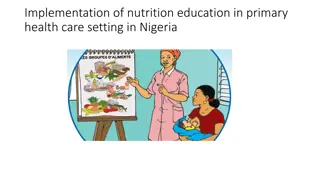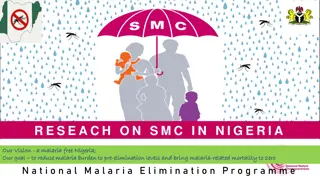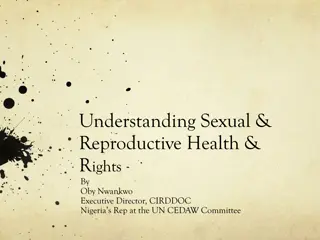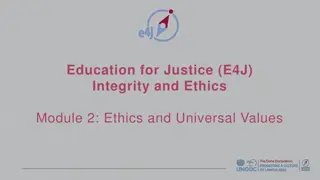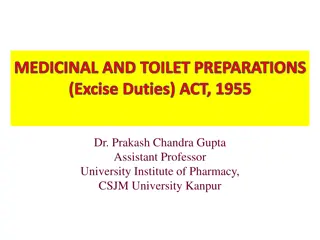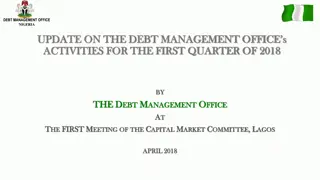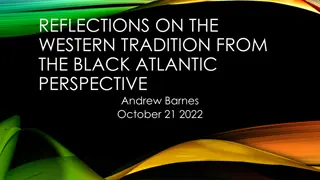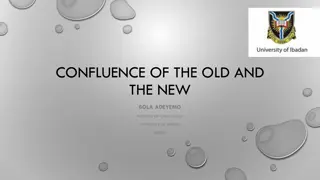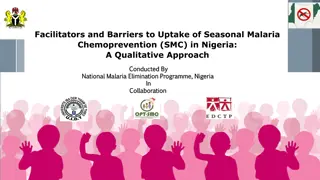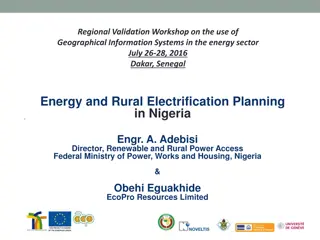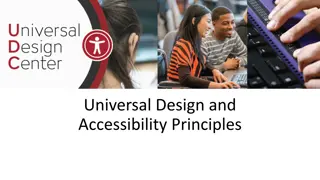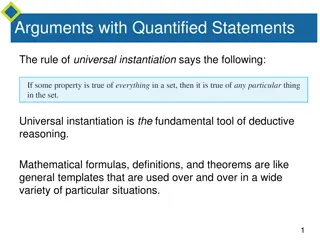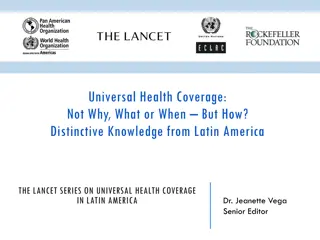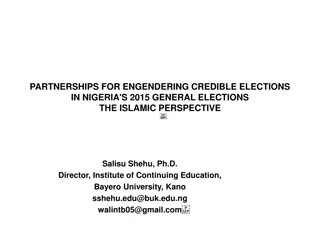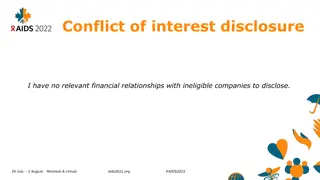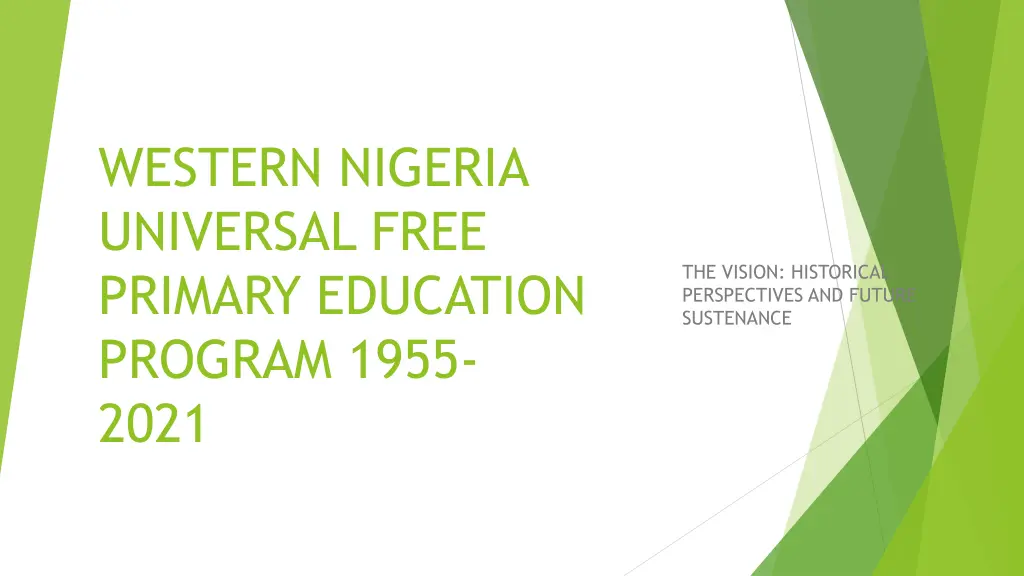
Vision of Western Nigeria Universal Free Primary Education Program
Explore the historical perspective and future sustenance of the Western Nigeria Universal Free Primary Education Program initiated in 1955 by Chief Obafemi Awolowo. The program emphasizes the crucial role of education in shaping individuals as dynamic members of society while striving for national freedom and full development. Learn why education is key to individual success, societal progress, and national growth.
Download Presentation

Please find below an Image/Link to download the presentation.
The content on the website is provided AS IS for your information and personal use only. It may not be sold, licensed, or shared on other websites without obtaining consent from the author. If you encounter any issues during the download, it is possible that the publisher has removed the file from their server.
You are allowed to download the files provided on this website for personal or commercial use, subject to the condition that they are used lawfully. All files are the property of their respective owners.
The content on the website is provided AS IS for your information and personal use only. It may not be sold, licensed, or shared on other websites without obtaining consent from the author.
E N D
Presentation Transcript
WESTERN NIGERIA UNIVERSAL FREE PRIMARY EDUCATION PROGRAM 1955- 2021 THE VISION: HISTORICAL PERSPECTIVES AND FUTURE SUSTENANCE
VISION Chief Obafemi Awolowo was the visionary. In his vision, the human being is: the sole dynamic in nature a member of a family and the state possessing rights and owning obligations a consumer and agent of production
THE QUESTION What does the human being need to succeed as the sole dynamic in nature? What do the family and society need to do to help him/her?
THE ANSWER Education, education, education! The success of a human being depends wholly on the degree of his health, his intellectual comprehension, and spiritual depth. This is because the coefficient of his efficiency in all undertakings generally, and of his productivity in any economic venture in particular, is education in every sense of the word. --The People s Republic, Ibadan: University Press, 1968 p.211
Education is that process of physical and mental culture whereby a man s (woman s) personality is developed to the fullest. WHAT IS EDUCATION? -- Education as a Means to National Freedom A 1947 lecture reprinted in Voice of Reason Vol. 1. Literacy is part but not the whole of education.
WHY EDUCATE? A man (or woman) whose personality is fully developed: never fears anything; he (or she) cringes not, and never feels inferior to anyone; he or she is self- reliant, will resist any form of enslavement; he or she is self-confident and courageous does his/her work with efficiency and probity exercises freedom without endangering the freedom of others: because his body, brain, and mind are fully developed.
EDUCATION AND NATIONAL FREEDOM Chief Awolowo s 1947 lecture underscored his view of education as (a) a means to attaining national freedom from the British, and (b) a means of benefitting from the freedom when obtained.
Moral vision: as sole dynamic in nature, the development of human personality to the fullest is a moral prerogative Political vision: To achieve the goal of national freedom from the colonial masters, education of citizens is key. To maintain the freedom once obtained, education of citizens to the fullest extent is key. TWO VISIONS IN ONE The moral vision was the foundation of the political vision.
THE TRANSITION FROM EDUCATION IS IMPORTANT TO EDUCATION MUST BE FREE Moral argument: If education is a good for one individual, it is equally a good for other individuals. Where individuals cannot afford the good, society is obligated to provide the means to achieve the good for all. Pragmatic argument: Everybody must be educated. When the majority are uneducated, the few educated cannot live a normal life as educated people elsewhere do. Developmental argument: The state stands to lose the potential contributions of the poor uneducated to its development. All hands must be on the deck.
THE PLANNING Detailed and delicate planning went into the preparation for the launch of the program. Positive contributions included: a conducive political structure strong and dedicated political leadership skilled administrative leadership
POLITICAL STRUCTURE A true federal structure that allowed each region freedom in the matter of education. A revenue allocation system that favoured derivation A well-managed internal revenue generation effort.
Chief Awolowo and his team were well-prepared. Each team member was well-educated a confirmation of the political argument of the vision. A survey of the needs of the program teachers, classrooms, projected number of new students and graduation rates, feeder institutions, including secondary modern schools, additional secondary schools, trade schools, etc. and additional teacher training colleges. POLITICAL LEADERSHIP Action Group as a mass party mobilized the people for policy ownership.
ADMINISTRATIVE LEADERSHIP An administrative cadre that was apolitical, well-educated highly dedicated with skills in analysis of needs and implementation of policies.
OPPOSITION Partisan politics of the worst kind manipulated the electorate using their worst but unfounded fears. Concerns included: the alleged denial of parents the services of their kids on the farm Increase in taxation But Action Group stuck to its program and timeline.
SUSTENANCE Impact of political development post-1966 Unitarization and centralization Military revenue system Post-military civilian culpability in educational decline Misplaced priorities
Reclaim the 1955 vision by: Struggling for and achieving a true federal structure Redirecting resources to benefit the education sector WAY FORWARD Inspiring the private sector to contribute to public education Encouraging shared responsibility between families and communities on the one hand and the state on the other.




